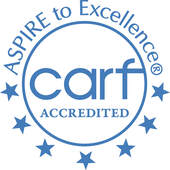Intervention
If an alcoholic/drug addict is unwilling to seek help, is there any way to get him or her into treatment?
A person with an addictive disorder cannot be forced to get help. Based on clinical experience, many addiction treatment specialists recommend the following steps to help an alcoholic accept treatment:
1. Stop all "rescue missions." Family members often try to protect an alcoholic/drug addict from the results of his or her behavior by making excuses to others about his or her drinking/using and by getting him or her out of alcohol/drug related jams. It is important to stop all such rescue attempts immediately, so that the alcoholic/drug addict will fully experience the harmful effects of his or her drinking and, thereby, become more motivated to seek treatment.
2. Time your intervention. Plan to talk with the person shortly after an alcohol/drug related problem has occurred -- for example, a serious family argument in which alcohol/drugs played a part or an alcohol/drug related accident. Also choose a time when he or she is sober, when both of you are in a calm frame of mind and when you can speak privately.
3. Be specific. Tell the family member that you are concerned about his or her drinking/drug usage and want to be supportive in getting help. Back up your concern with examples of the ways in which his or her drinking/drug usage has caused problems for both of you, including the most recent incident.
4. State the consequences. Tell the family member that until he or she gets help, you will carry out consequences -- not to punish the alcoholic/drug addict, but to protect yourself from the harmful effects of the drinking. These may range from refusing to go with the person to any alcohol/drug related social activities to moving out of the house. Do not make any threats you are not prepared to carry out.
5. Be ready to help. Gather information in advance about treatment options. If the person is willing to seek help, call immediately to speak with a counselor. Offer to go with the family member to help them with getting enrolled and starting the program.
6. Call on a friend. If the family member still refuses to get help, ask a friend to talk with him or her, using the steps described above. A friend who has recovered from alcohol/drug abuse may be particularly persuasive, but any caring, nonjudgmental friend may be able to make a difference. The intervention of more than one person, more than one time, is often necessary to persuade an alcoholic/drug addict to seek help.
7. Find strength in numbers with the help of family members, relatives, friends and a counselor to confront an alcoholic/drug addict as a group.
A person with an addictive disorder cannot be forced to get help. Based on clinical experience, many addiction treatment specialists recommend the following steps to help an alcoholic accept treatment:
1. Stop all "rescue missions." Family members often try to protect an alcoholic/drug addict from the results of his or her behavior by making excuses to others about his or her drinking/using and by getting him or her out of alcohol/drug related jams. It is important to stop all such rescue attempts immediately, so that the alcoholic/drug addict will fully experience the harmful effects of his or her drinking and, thereby, become more motivated to seek treatment.
2. Time your intervention. Plan to talk with the person shortly after an alcohol/drug related problem has occurred -- for example, a serious family argument in which alcohol/drugs played a part or an alcohol/drug related accident. Also choose a time when he or she is sober, when both of you are in a calm frame of mind and when you can speak privately.
3. Be specific. Tell the family member that you are concerned about his or her drinking/drug usage and want to be supportive in getting help. Back up your concern with examples of the ways in which his or her drinking/drug usage has caused problems for both of you, including the most recent incident.
4. State the consequences. Tell the family member that until he or she gets help, you will carry out consequences -- not to punish the alcoholic/drug addict, but to protect yourself from the harmful effects of the drinking. These may range from refusing to go with the person to any alcohol/drug related social activities to moving out of the house. Do not make any threats you are not prepared to carry out.
5. Be ready to help. Gather information in advance about treatment options. If the person is willing to seek help, call immediately to speak with a counselor. Offer to go with the family member to help them with getting enrolled and starting the program.
6. Call on a friend. If the family member still refuses to get help, ask a friend to talk with him or her, using the steps described above. A friend who has recovered from alcohol/drug abuse may be particularly persuasive, but any caring, nonjudgmental friend may be able to make a difference. The intervention of more than one person, more than one time, is often necessary to persuade an alcoholic/drug addict to seek help.
7. Find strength in numbers with the help of family members, relatives, friends and a counselor to confront an alcoholic/drug addict as a group.

